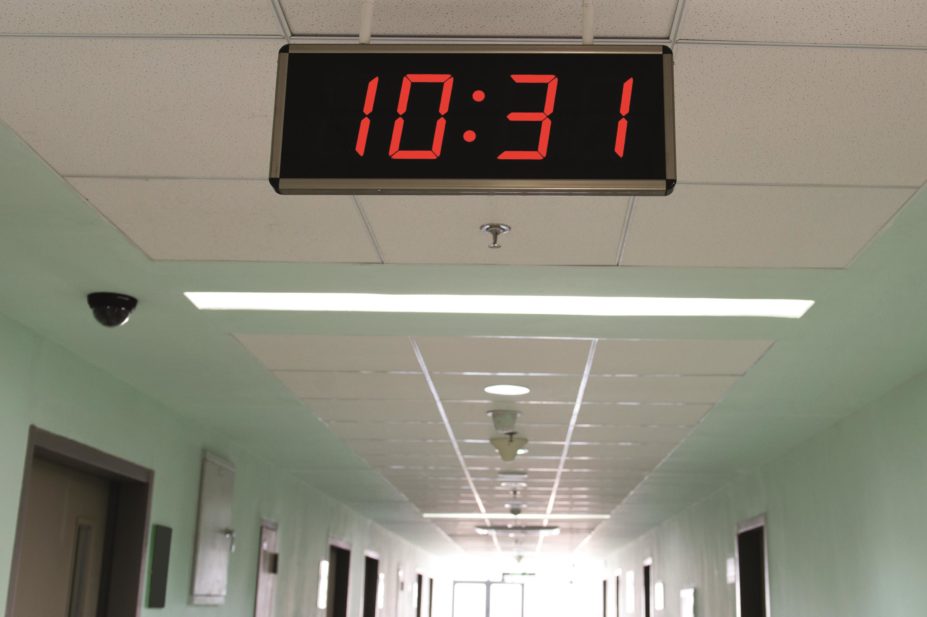
istockphoto.com
What was the problem you were facing?
West Hertfordshire Hospitals NHS Trust is a multi-site trust with a weekend service operating from the main acute unit at Watford General Hospital. Although the dispensary had been open on Saturday and Sunday mornings for some years, it had become noticeable that longer opening hours were required because of bed pressures, even after a 120-bed acute admissions unit had been opened.
On some days, staff were still dispensing at 4pm after starting at 10am without any breaks. The advertised opening hours were 10am to 1pm for accepting work with the plan to leave by 2pm. However, there was an increasing frequency of late requests for discharge medicines that were difficult to refuse. We wanted to extend the hours for accepting work until 3pm with the intention of closing at 4pm, but with the option to accept later work at the team leader’s discretion. We needed to achieve this using only our current staff because no money was available for funding any new posts for the increased opening hours.
We also had staff who had built up many hours of time in lieu from weekend work. We have now specified that this lieu time should be taken within three months and can be combined with other lieu time to make up a full day of leave.
What challenges did you encounter, and how did you overcome them?
Our full-time staff previously worked one weekend in four, from 10am to 2pm, alternating between Saturdays and Sundays, and part-time staff worked one in eight. We had to find a fixed and fair rota that would cause the least changes to the most staff and we had to try a few permutations. The simplest and most popular option was that full-time staff members would have to work one weekend in six, from 10am to 4pm, and staff members working less than 22 hours per week would have to work one weekend in 12. This meant that most people who already worked weekends did not increase their weekend hours at all. There were some staff members who had historically not been on the weekend rota and were reluctant to be included, but we needed them to be involved so that the extended hours plan would work.
Once we found that this worked, we wrote a document outlining the proposed rota and the reasons for it, which was circulated to all staff. We also sent an analysis of the workload showing the number of items and the finishing times for the previous six months. We held meetings for all affected staff members and union representatives also attended. Staff members were able to request one-to-one meetings with the chief pharmacist and human resources team to discuss any concerns that they did not wish to voice in public.
A briefing sheet was also sent round to the new starters outlining the processes and general tips for the day so that staff members did not feel confused when they started.
We also offer staff members the choice of working a fixed Saturday or Sunday but allow them to switch to the other day, providing the teams remain balanced. All swaps must be approved by a senior manager. We do not have every slot on the rota filled but have staff members who want to work overtime and a few bank staff members who help us when permanent staff leave or go on maternity leave.
What advice would you give to another pharmacy team trying to set up weekend working?
Staff engagement at the beginning of any change is always helpful and most staff understood the reasons for the need to extend their hours. A short survey was sent out via email, which allowed staff who may not have spoken up at meetings to express their view and also enabled us to select the most popular choices on issues such as the length of a lunch break.
The part-time staff had the most queries about the rota, so it would have been helpful to have spent more time discussing things with them earlier. Any part-time staff who joined in the past few years had weekends included in their contracts so there would be fewer problems when changes were made.
We delivered training sessions in the dispensary for any staff members who felt they had lost their dispensing skills because they had been based solely in wards in recent years. Training courses would be useful for refreshing other skills, such as drug history taking and medicines reconciliation.


